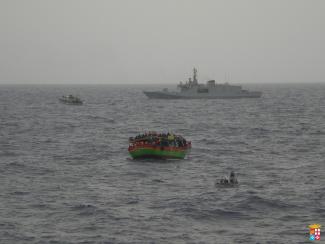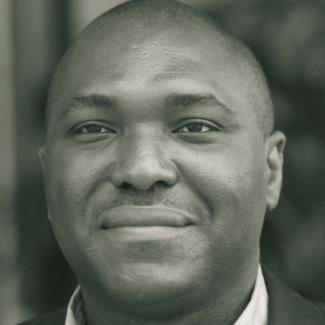Comment
Fortress Europe

The media cannot convey the whole impact of accidents that kill people. That is certainly true of news of shipwrecked refugees off the Italian, Spanish and Greek coasts. In Europe, the images, facts and figures re-confirm many TV watchers’ conviction that the continent is being swamped by undeserving people and threatened by gangs of southern barbarians. Other TV watchers are probably more sensitive and understand that people are dying miserably at sea, far from their families.
In Africa and the Middle East, the same news triggers different thoughts. It takes courage to set sail towards a better future - and the only crime the dead are guilty of is the attempt to enter the EU without valid documents.
At all times and in all places, there is only one reason why people leave their homes: the pursuit of happiness. The pursuit of happiness does not figure as an item in its own right in the Universal Declaration of Human Rights, but it permeates all of the Declarations articles. Every human being wants to be happy. That has always been so, and that will never change.
For some people, the pursuit of happiness means to leave a dangerous region that is haunted by suffering, war, drought, flood or some other kind of misfortune in order to reach more hospitable shores. Obviously, the plain and legitimate desire for prosperity is relevant too.
What many Europeans do not seem to understand is that people never leave their homes frivolously. To leave always means pain and inner conflict. It takes strength to leave one’s family and relatives behind. It takes courage and self-confidence to believe one will find a better future abroad. In any case, the decision to migrate is never easy. Often it appears to be the last option to people who have tried to improve their lot by all other means available.
Migrants are not lazy parasites. On the contrary, they tend to be achievers who are prepared to accept risks. They trust they can learn a foreign language and find work in a country they do not know. Many migrants are so industrious they are willing to do more than one job, provided one lets them work. They want to make money – not only for themselves, but for their families too. Migrants tend to be especially creative and sociable. Otherwise, they’d hardly make it from a country like Togo to the Mediterranean coast.
Europe is sealing itself off, no doubt. EU leaders keep speaking about human rights, and politicians from the EU love to deliver lectures on good governance in Africa, Asia and Latin America. It undermines their credibility, however, that they show little interest in practice in granting asylum to those who must flee their countries for political reasons. It reveals their double standards that they insist on free movement for goods and investments in trade negotiations, but not for free movement of labour.
Observers from developing countries increasingly view Europe as a fortress of xenophobia because of the restrictive way in which the EU handles the right to asylum and the merciless way it sends irregular migrants home. The success of nationalistic leaders in the recent European elections confirmed a trend that first became evident in the 1990s.
These things fly in the face of the European Union’s self-perception of being an international model for democracy, rule of law and multi-cultural pluralism. It is most welcome that Italy’s coast guard has become more likely to save people who are helplessly adrift at sea than it was before the Lampedusa disaster last year. However, that will not suffice to repair the EU’s soiled image. EU policies regarding asylum and migration, after all, are still geared towards inhumane exclusion.
Samir Abi the civil-society organisation Visions Solidaires in Togo. samirvstg@gmail.com








